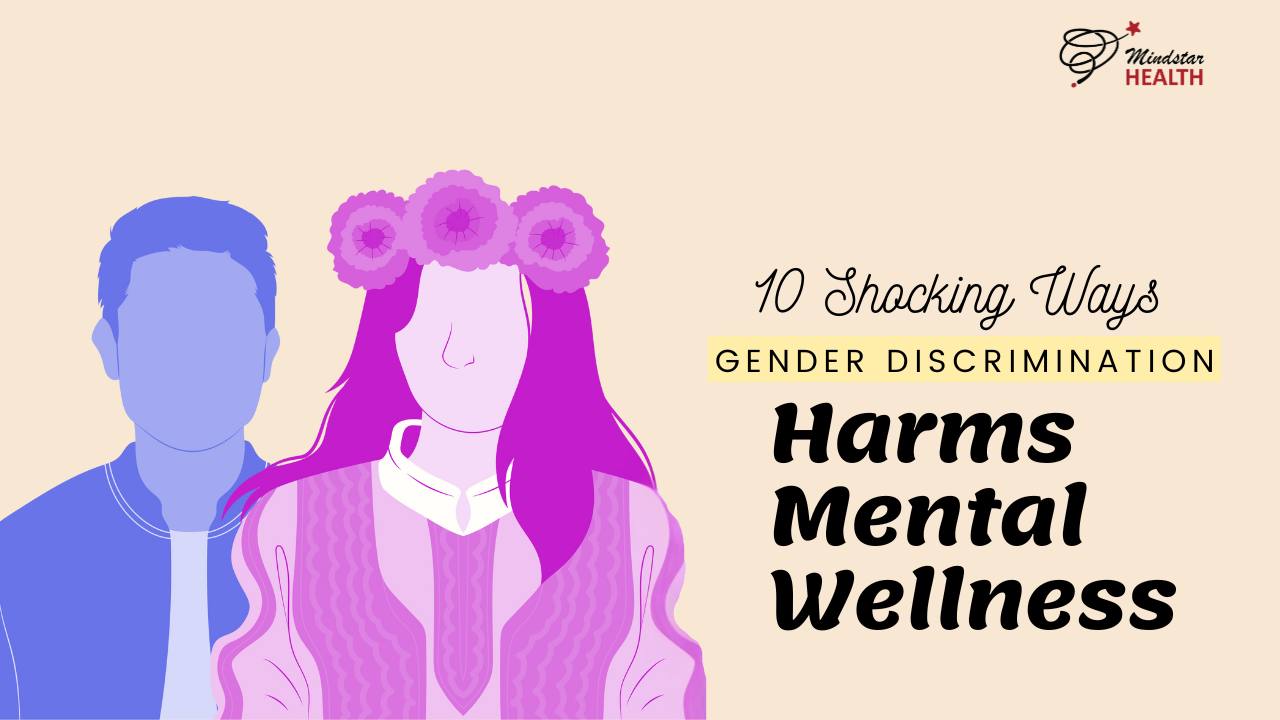Achieving a healthier work-life balance is essential for both personal well-being and professional success. Many individuals face challenges in balancing work demands with personal time, but with the right approach, it’s entirely possible to find harmony. In this guide, we’ll provide useful tips to maintain work-life balance, offering healthy lifestyle tips for office workers and practical strategies on how to maintain a healthy work-life balance. Whether you’re working from home or in the office, these tips will help you manage your time, reduce stress, and prioritize self-care, allowing you to lead a more fulfilling and balanced life.
The Importance of a Healthier Work-Life Balance
Maintaining a healthier work-life balance is essential for personal and professional growth. It boosts productivity at work while contributing to a more fulfilling, stress-free personal life. Achieving this balance leads to better mental and physical health, increased job satisfaction, and stronger relationships with family and friends. Here’s why it’s crucial and how you can achieve it:
Improved Mental and Physical Health
A healthier work-life balance reduces stress, anxiety, and burnout, enhancing overall mental well-being. Chronic stress, caused by imbalance, can lead to physical health issues like headaches, fatigue, and heart disease.
Tips to maintain work-life balance: Incorporate physical activity into your day and take breaks to clear your mind. Even short walks or stretches can help reduce stress levels.
Enhanced Productivity and Focus
When you achieve balance, you can focus better at work and in your personal life. Taking regular breaks and disconnecting from work allows you to recharge and approach tasks with greater energy and clarity.
Healthy lifestyle tips for office workers: Stay active throughout the day, take short breaks, and prioritize tasks to stay focused without feeling overwhelmed.
Better Relationships and Personal Time
Spending quality time with loved ones is one of the greatest benefits of work-life balance. By setting boundaries between work and personal life, you can nurture relationships, engage in hobbies, and prioritize self-care.
How to maintain a healthy work-life balance: Set clear boundaries for work hours, and be mindful of how much time you spend on work outside of regular office hours.
Increased Job Satisfaction
A balanced life leads to higher job satisfaction by reducing burnout and frustration. When you’re not overburdened with work, you’re more likely to enjoy your role and contribute effectively.
How to get a healthy work-life balance: Learn to say no to excessive work demands and delegate when possible, so you’re not stretched too thin.
Long-Term Career Success
Sustaining a healthy work-life balance prevents burnout, ensuring greater career longevity. Balancing work with rest allows for sustained growth and creativity in your career.
Tips to maintain work-life balance: Focus on long-term health and productivity by taking regular breaks and setting realistic career goals.
Achieving a healthier work-life balance is a continuous practice, not a one-time effort. By adopting these strategies, you can create a more balanced life that supports both your personal well-being and professional success.
Unhealthy work life balance to healthier work life balance
An unhealthy work-life balance occurs when work consistently takes precedence over personal life, leading to stress, burnout, and a lack of time for relaxation or relationships. In today’s fast-paced environment, many workers feel the constant pressure to stay “on,” due to tight deadlines, high expectations, or the growing blur between home and office spaces. This imbalance often results in work consuming the majority of one’s time and energy, leaving little room for self-care or personal activities.
When work dominates life, it negatively impacts both mental and physical health and can have long-term effects on job performance and personal relationships. Constantly prioritizing work over other important aspects of life can lead to exhaustion, decreasing the ability to focus or perform effectively in the workplace. Over time, this can lead to reduced productivity, creativity, and job satisfaction.
For office workers, this imbalance is even more pronounced. Without clear boundaries, office-related tasks can extend into evenings and weekends. The pressure to respond to emails, attend after-hours meetings, or address urgent work matters can severely impact time for family, hobbies, and personal wellness.
To achieve a healthier work-life balance, workers need to be mindful of how much time is spent on work versus personal activities. It’s crucial to make time for relaxation, physical health, and emotional well-being. Many office workers sacrifice their health when work takes over, often skipping meals, neglecting exercise, or sacrificing sleep, which worsens stress and fatigue.
Recognizing the importance of a healthy work-life balance is essential for both personal and professional success. By committing time to self-care and fostering a healthier lifestyle, workers can improve their overall well-being. This not only helps them perform better at work but also keeps them engaged and productive. Learning how to maintain a healthy work-life balance with tips to maintain work-life balance, such as taking breaks during the day or prioritizing personal time, is key for long-term success and happiness.
Signs of Unhealthy Work-Life Balance – convert it to healthier work life balance
An unhealthy work-life balance can have a significant impact on both mental and physical well-being. Recognizing the signs early on is essential for taking the necessary steps to restore balance. Here are 10 key signs that suggest you may be struggling with maintaining a healthy work-life balance:
Constantly Feeling Overwhelmed: Feeling stressed or overwhelmed at work without sufficient time to recharge is a clear indicator of poor work-life balance.
Lack of Personal Time: When work dominates your day and you consistently skip personal activities, it’s a sign you’re neglecting life outside of work, which can affect your overall well-being.
Chronic Fatigue: Overworking can leave you feeling physically exhausted, even after a full night’s rest, which impacts your energy levels and productivity, ultimately making it harder to maintain a healthier work-life balance.
Neglected Physical Health: If you’re skipping workouts, not getting enough sleep, or eating unhealthy foods due to work pressures, this can be a warning sign of imbalance. Healthy lifestyle tips for office workers suggest prioritizing well-being to avoid this.
Decreased Productivity: Overworking often leads to burnout, which ironically reduces productivity. It’s essential to know how to maintain a healthy work-life balance to avoid becoming less effective at completing tasks.
Increased Stress Levels: Constant high demands at work, without time for relaxation, can lead to chronic stress and anxiety, impacting both your job and personal life. Tips to maintain work-life balance include regular breaks and self-care practices.
Poor Relationships: If work consistently prevents you from spending quality time with family and friends, it can strain your relationships, making it harder to enjoy a healthier work-life balance.
Inability to Unplug: Struggling to disconnect from work during evenings, weekends, or vacations indicates that you’re not achieving a balanced lifestyle. Learning how to get a healthy work-life balance involves setting clear boundaries between work and personal time.
Burnout Symptoms: Physical symptoms like headaches, muscle tension, or sleep disturbances may signal that you are nearing burnout due to poor work-life balance. Taking action early can help you regain a healthier lifestyle.
Lack of Motivation: Feeling disengaged or lacking enthusiasm for both work and personal activities often points to an unhealthy balance. Implementing healthy lifestyle tips for office workers can help you stay motivated and energized.
By recognizing these signs, you can take proactive steps toward achieving a healthier work-life balance and improve both your mental and physical well-being.
How to Address an Unhealthy Work-Life Balance
To avoid or correct these signs, tips to maintain work life balance are crucial. Implement strategies like setting boundaries, prioritizing tasks, and incorporating healthy lifestyle tips for office workers, such as taking breaks, staying active, and practicing mindfulness. These changes can help you learn how to maintain a healthy work-life balance and how to get a healthy work life balance for long-term well-being.
Tips for Achieving a Healthier Work-Life Balance
To avoid or correct these signs, tips to maintain work-life balance are essential. Implement strategies like setting boundaries, prioritizing tasks, and incorporating healthy lifestyle tips for office workers, such as taking breaks, staying active, and practicing mindfulness. These changes can help you learn how to maintain a healthy work-life balance and how to get a healthy work-life balance for long-term well-being.
Tips for Achieving a Healthier Work-Life Balance
Achieving a healthier work-life balance is crucial for long-term well-being, productivity, and happiness. Here are 10 effective tips to maintain work-life balance and create harmony between your personal and professional life:
Set Clear Boundaries: Establish specific work hours and stick to them. Avoid working after hours or checking emails during personal time to protect your downtime.
Prioritize Tasks: Focus on high-priority work tasks first and delegate or postpone less important tasks. This helps manage workload without feeling overwhelmed.
Take Regular Breaks: Follow healthy lifestyle tips for office workers, such as taking short breaks throughout the day. A few minutes to stretch or walk around can improve focus and reduce stress.
Schedule “Me Time”: Make personal time a priority. Whether it’s reading a book, taking a walk, or practicing meditation, regular “me time” is essential for relaxation and recharging.
Learn to Say No: Setting boundaries at work means knowing when to say no. Don’t overcommit to projects or extra tasks if it interferes with your personal life or well-being.
Unplug After Work: Disconnect from work-related tasks and technology at the end of the day. Use this time to focus on personal activities and maintain a healthy work-life separation.
Get Active: Incorporate physical activity into your routine. Exercise is crucial for physical and mental health and helps manage stress. A quick walk or workout during breaks can make a big difference.
Ask for Flexibility: Talk to your employer about flexible work options, like telecommuting or adjusting hours, to better manage your time and maintain balance between work and life.
Plan Personal Activities: Schedule personal activities like family outings, hobbies, or social events in advance. Treating personal time with the same importance as work commitments helps ensure you make time for relaxation.
Take Time Off: Don’t skip vacations or breaks. Taking regular time off from work can help you recharge, prevent burnout, and improve both mental and physical health.
By incorporating these tips to maintain work-life balance, you’ll be better equipped to create a routine that allows you to thrive both at work and in your personal life. How to maintain a healthy work-life balance requires conscious effort and self-awareness, but with the right strategies, it’s achievable. Ultimately, finding balance will help you stay energized, engaged, and fulfilled both at work and at home.ltimately, finding balance will help you stay energized, engaged, and fulfilled both at work and at home.
Overcoming Common Obstacles to Work-Life Balance
Achieving a healthier work-life balance can be challenging due to various obstacles, such as heavy workloads and personal responsibilities. However, with the right strategies, these challenges can be managed effectively. Here are 10 practical tips to maintain work-life balance and overcome common obstacles:
Set Realistic Expectations: Unrealistic expectations at work are one of the main obstacles to a healthy work-life balance. Set achievable goals for yourself and communicate with your employer about what’s possible to avoid burnout.
Learn to Delegate: Delegating tasks that others can handle, whether at work or home, helps you free up time and reduce stress, allowing you to focus on more important tasks.
Use Time Management Tools: Use tools like calendars, task managers, and reminders to organize your day efficiently. Prioritizing tasks and staying on schedule helps you manage your time better and is key for a healthier work-life balance.
Establish Boundaries: How to maintain a healthy work-life balance starts with setting clear boundaries. Avoid working after hours and let colleagues know your availability. Respecting these boundaries ensures you can dedicate time to your personal life.
Say No When Needed: Overcommitting to additional tasks is a common pitfall. Learning to say no when you already have a full schedule is essential for maintaining balance and preventing overload.
Manage Stress with Breaks: Taking regular breaks throughout the day is crucial. Incorporate healthy lifestyle tips for office workers, such as short walks or mindfulness exercises, to reset and recharge your mind.
Make Time for Physical Health: Incorporating exercise into your day can be challenging, but it’s essential. Even short workouts or stretches can relieve stress and boost your energy, contributing to your overall physical and mental well-being.
Set Priorities: Clearly define what’s most important in both your work and personal life. Whether it’s a project at work or time with family, aligning your priorities ensures you stay focused on what matters most and contributes to achieving a healthy work-life balance.
Create a Support System: Build a network of support, whether at work or home. Having people to delegate tasks to or to help with responsibilities can alleviate pressure and prevent overwhelm.
Take Breaks and Vacations: It’s easy to get caught up in work, but taking regular breaks and vacation days is essential. How to get a healthy work-life balance requires rest to rejuvenate your body and mind, ensuring long-term productivity and happiness.
By addressing these obstacles head-on and following tips to maintain work-life balance, you can better manage the demands of work and personal life. With dedication and effort, achieving a balanced lifestyle is possible, leading to a healthier, more fulfilling life.
Creating Long-Term Habits for Sustainable Balance
Achieving a healthier work-life balance requires more than just temporary fixes; it’s about creating sustainable habits that support both professional success and personal well-being over time. By making small, intentional changes to your daily routine, you can build a lifestyle that helps you thrive. Here are 10 tips to maintain work-life balance and create long-term habits for a balanced life:
Start with Clear Boundaries: Establish firm boundaries between work and personal time. How to maintain a healthy work-life balance starts with knowing when to stop working and focus on personal time, whether it’s after work hours or on weekends.
Practice Consistent Time Management: Use planners or digital tools to organize your schedule. Efficient time management ensures that you balance work responsibilities and personal activities without feeling overwhelmed.
Prioritize Self-Care Daily: Make self-care a priority. Whether it’s taking a walk, meditating, or reading, incorporating these practices into your daily routine supports mental and physical health. Healthy lifestyle tips for office workers include taking breaks, staying active, and avoiding sitting for long periods.
Set Achievable Goals: Break down your long-term goals into smaller, manageable tasks. Setting realistic goals helps reduce stress and keeps you focused on what’s important, both at work and in your personal life.
Commit to Regular Exercise: Incorporate exercise into your daily routine to boost energy levels and reduce stress. Even short workouts or a quick walk during lunch can make a big difference to your health.
Build a Support System: Surround yourself with a network of friends, family, or colleagues who support you in balancing responsibilities. Having people to rely on for both work and personal life can alleviate pressure.
Learn to Delegate: Don’t try to do everything yourself. Delegating tasks at work or home will free up time for yourself, reducing stress and ensuring tasks are completed efficiently.
Unplug Regularly: Take intentional breaks from work emails, social media, and technology. Disconnecting during personal time helps you stay present and recharge for both personal and professional tasks.
Reflect and Adjust: Regularly evaluate your work-life balance and make adjustments as needed. How to get a healthy work-life balance is an ongoing process that requires reflection and flexibility as circumstances change.
Create and Stick to Routines: Build daily or weekly routines that incorporate both work tasks and personal time. Having a consistent schedule ensures you don’t neglect self-care and helps keep both your work and personal life in harmony.
By following these tips to maintain work-life balance, you can build lasting habits that promote a healthier and more fulfilling lifestyle. It’s about making small, consistent changes that support well-being in both your work and personal life. With dedication and practice, you’ll learn how to maintain a healthy work-life balance and enjoy long-term well-being.
Achieving a healthier work-life balance requires consistent effort, the right strategies, and the development of long-term habits. By setting boundaries, managing time effectively, prioritizing self-care, and building a support system, you can overcome common obstacles and create a sustainable balance. Incorporating healthy lifestyle tips for office workers and learning to adjust as needed helps maintain well-being both at work and in personal life. With dedication to how to maintain a healthy work-life balance, you can enjoy improved productivity, reduced stress, and a more fulfilling life in the long run.






















Leave a Reply
You must be logged in to post a comment.